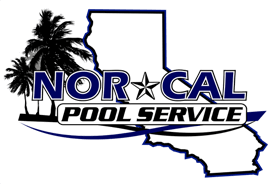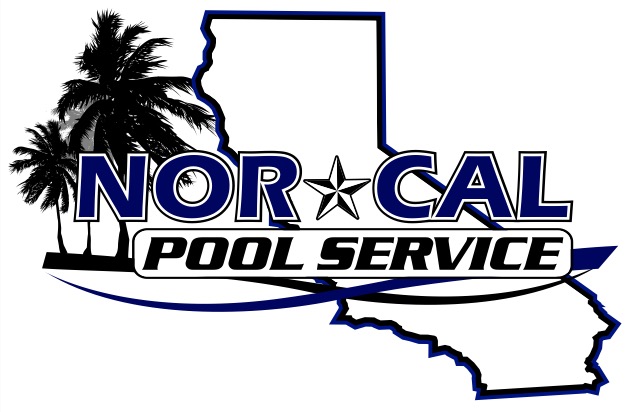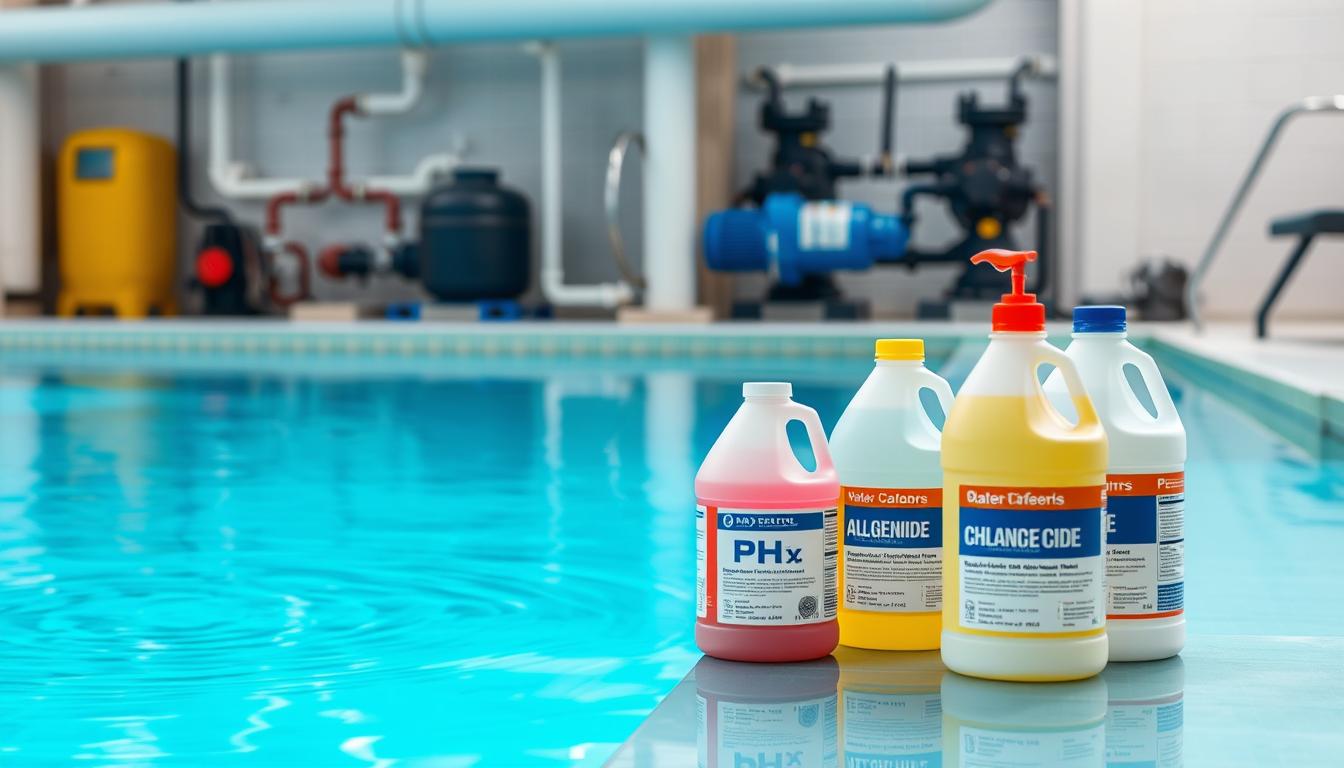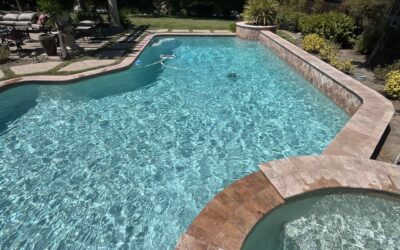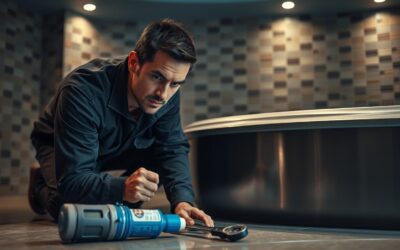Professional pool water chemistry and treatment require precise scientific understanding. Our comprehensive guide will walk you through critical strategies for maintaining safe and pristine commercial swimming environments.
Pool water maintenance starts with understanding the delicate balance of chemical interactions. We recognize that effective pool management goes beyond simple cleaning – it demands careful monitoring of multiple chemical parameters to protect both swimmers and pool infrastructure.
Proper pool water chemistry involves tracking key indicators like pH levels, total alkalinity, calcium hardness, and chlorine concentration. These measurements help prevent equipment damage, control bacterial growth, and ensure optimal swimming conditions.
Successful pool water treatment requires consistent testing and strategic chemical adjustments. Pool operators must develop a proactive approach that addresses potential water quality issues before they become significant problems.
Our expertise in pool water chemistry and treatment comes from years of working with commercial facilities across the United States. We understand the unique challenges of maintaining water quality in high-traffic swimming environments.
This guide will provide actionable insights into creating a robust water management strategy that keeps pools clean, safe, and inviting for all users. From understanding chemical interactions to implementing effective testing protocols, we’ll cover everything pool managers need to know.
Understanding Pool Water Chemistry
Pool water chemistry is a delicate balance that requires careful attention and precise management. Maintaining proper Pool Water Balancing is crucial for creating a safe, comfortable swimming environment. Our comprehensive guide will help you understand the key components that contribute to optimal water quality.
Effective pool maintenance starts with understanding the fundamental elements of water chemistry. Pool pH Levels play a critical role in ensuring swimmer comfort and chemical effectiveness. The ideal pH range sits between 7.4 and 7.6, which provides the perfect environment for swimmers and pool equipment.
Diving into pH Dynamics
When Pool pH Levels fall outside the recommended range, serious problems can arise. A pH below 7 risks damaging pool surfaces and equipment, while levels above 7.8 may cause skin irritation and cloudy water. Regular testing helps maintain the delicate chemical balance that keeps your pool pristine.
Alkalinity in Pool Water Management
Alkalinity in Pool Water acts as a critical buffer that stabilizes pH levels. Experts recommend maintaining alkalinity between 80 and 150 parts per million (ppm). Low alkalinity levels below 80 ppm can lead to corrosion and potential damage to pool infrastructure.
Calcium Hardness Considerations
Calcium hardness is another essential aspect of pool water chemistry. We recommend keeping calcium levels between 200 and 300 ppm. Levels below 150 ppm require a calcium chloride treatment to prevent potential damage to pool surfaces and equipment.
Key Chemical Treatments for Commercial Pools
Maintaining proper water chemistry is crucial for commercial pools. Pool water treatment chemicals play a vital role in keeping swimmers safe and water crystal clear. Our comprehensive guide will explore the essential chemical treatments that ensure optimal pool conditions.
Chlorine: The Primary Sanitizer
Chlorine remains the most popular sanitizer for swimming pools. Recommended chlorine levels for pool treatment range from 1-3 ppm (parts per million). Trichlor tablets, which contain 90% available chlorine, offer an efficient solution for maintaining water quality. Pool operators should test chlorine levels regularly to ensure proper sanitation and swimmer safety.
Bromine: An Alternative Sanitization Option
For pools with higher temperatures or sensitive environments, bromine provides an excellent alternative to traditional chlorine. While typically more expensive (about double the cost of chlorine), bromine is gentler on skin and more stable at higher temperatures. It’s particularly effective for hot tubs and commercial pools with unique environmental challenges.
Algaecides and Water Clarification
Preventing algae growth is critical in pool water treatment chemicals. Algaecides should be applied at least once a week to combat potential infestations. Flocculants help improve water clarity by binding small particles, making them easier to filter. For severe algae issues, shock treatments combined with specialized algaecides can effectively restore water quality.
Our recommended approach involves a comprehensive chemical management strategy that balances sanitization, prevention, and regular maintenance. By understanding these key chemical treatments, pool operators can maintain pristine water conditions and ensure a safe swimming environment.
Regular Testing and Monitoring Methods
Pool water chemistry and treatment require consistent and precise monitoring to ensure swimmer safety and pool longevity. Regular testing is the cornerstone of maintaining a healthy swimming environment. Our comprehensive approach focuses on understanding the critical aspects of pool water testing and selecting the most effective Pool Water Testing Kits.
Experts recommend testing pool water at least once per week, with increased frequency during high-usage periods or after significant weather events. For commercial pools, daily testing of pH and chlorine levels becomes crucial to maintain optimal water conditions.
Testing Frequency Guidelines
Professional pool maintenance requires a strategic testing schedule. We suggest:
– Weekly comprehensive water chemistry tests
– Daily pH and chlorine level checks
– Monthly professional testing at specialized pool stores
– Additional testing after heavy pool usage or rainfall
Selecting Effective Testing Kits
Choosing the right Pool Water Testing Kits involves understanding different testing methods. Test strips offer quick, budget-friendly options measuring key indicators like pH, alkalinity, and chlorine. Digital testers provide more advanced, precise measurements for comprehensive water treatment.
Our recommended testing kit should cover five primary water balance levels:
– pH
– Total Alkalinity
– Calcium Hardness
– Cyanuric Acid
– Chlorine or Bromine levels
Maintaining proper pool water chemistry requires diligence, appropriate testing tools, and consistent monitoring to prevent potential water quality issues and ensure a safe swimming experience.
Common Pool Water Problems and Solutions
Pool water maintenance can be challenging, with various issues threatening water quality and swimmer safety. Understanding how to diagnose and resolve common problems is crucial for keeping your commercial pool in top condition.
Addressing Cloudy Water Challenges
Cloudy water signals potential chemical imbalances or filtration problems. Our experts recommend checking chlorine levels, which should ideally remain between 2-3 ppm. When cloudiness persists, a Pool Shock Treatment can help restore water clarity. Factors like high Total Dissolved Solids (TDS), insufficient filtration, or environmental debris often contribute to water turbidity.
Fixing Algae Growth Issues
Algae can rapidly multiply when sanitizer levels drop. Different algae types require specific treatments. Green, mustard, and black algae each demand unique Pool Water Maintenance strategies. Pool Shock Treatment becomes essential in combating stubborn algae infestations. Applying algaecides and maintaining proper chlorine levels can prevent future growth.
Regular monitoring, balanced chemical levels, and proactive maintenance are key to preventing water quality issues. By understanding these common problems, pool operators can ensure a clean, safe swimming environment.
Seasonal Pool Maintenance Guidelines
Proper Pool Water Maintenance requires careful attention to seasonal changes. The transition between summer and winter demands specific strategies to protect your commercial pool and ensure optimal water chemistry and treatment throughout the year.
Seasonal pool care involves understanding the unique challenges each time of year presents. Consistent Pool Water Chemistry monitoring becomes crucial during these transitions to maintain water quality and equipment performance.
Preparing for Winterization
Winterization is a critical process for protecting your pool during cold months. We recommend lowering water levels 4-6 inches below the skimmer to prevent potential freeze damage. Adding a winter algaecide can reduce algae growth by up to 70%, ensuring your pool remains clean during inactive periods.
Key winterization steps include:
– Removing pool accessories
– Installing winter plugs
– Applying protective pool covers
– Balancing water chemistry before closing
Spring Start-Up Procedures
When spring arrives, careful Pool Water Treatment becomes essential. Begin by removing the winter cover, cleaning accumulated debris, and performing a comprehensive water chemistry test. Restore proper chemical balance by checking pH levels (aim for 7.4 to 7.6) and chlorine concentrations (1 to 4 parts per million).
Preventive maintenance can extend pool equipment life by 15-20%, making thorough spring preparation a smart investment for commercial pool operators.
Choosing the Right Chemical Products
Pool water chemistry and treatment require careful selection of chemical products to ensure optimal pool maintenance. Our guide will help you navigate the complex world of pool water treatment chemicals with confidence and expertise.
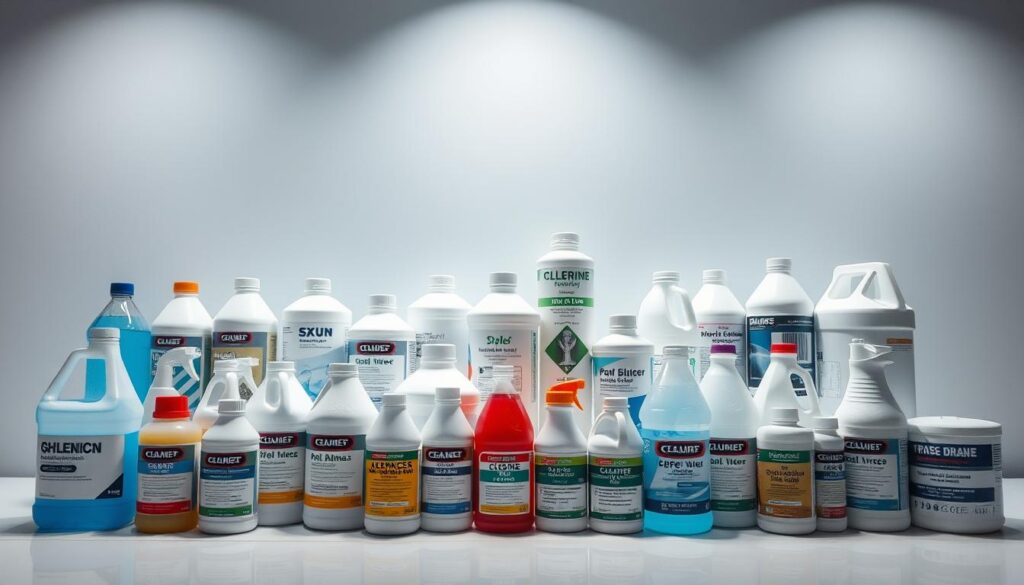
When selecting pool water treatment chemicals, multiple factors come into play. Budget, swimmer sensitivity, and pool environment are critical considerations that impact your chemical choices. The right products can make a significant difference in water quality and swimmer comfort.
Evaluating Brand Effectiveness
Not all pool water treatment chemicals are created equal. We recommend comparing brands based on several key criteria:
• Effectiveness in sanitization
• Cost per treatment
• Safety profile
• Compatibility with your specific pool type
• Ease of application
Eco-Friendly Options
Modern pool maintenance now includes environmentally conscious chemical solutions. Eco-friendly pool water chemistry treatments offer reduced environmental impact without compromising water quality. Look for products that:
• Use biodegradable ingredients
• Minimize chemical residues
• Provide effective sanitization
• Support sustainable pool maintenance practices
Understanding pool water chemistry means selecting chemicals that balance effectiveness, safety, and environmental responsibility. Our recommendations help pool operators make informed decisions that protect both swimmers and the surrounding ecosystem.
Professional Pool Maintenance Services
Professional pool maintenance goes beyond simple cleaning. At NorCal Pool Service, we specialize in comprehensive Pool Water Maintenance that ensures your commercial pool remains in pristine condition. Our expertise in Pool Water Chemistry & Treatment helps prevent potential issues before they become costly problems.
Our services include weekly chemical checks and periodic comprehensive inspections. We utilize advanced PoolOps® technology that provides automatic digital reports after each service visit, giving you complete transparency into your pool’s health. We understand that different pools have unique requirements, which is why we design customized treatment plans tailored to your specific pool environment.
Benefits of Hiring NorCal Pool Service
Professional pool services dramatically reduce the stress of maintenance for pool operators. We offer free basic pool inspections to assess chemical levels and equipment status, helping you stay ahead of potential issues. Our experienced team follows recommended testing frequencies, checking chlorine and pH levels 2-3 times weekly during peak seasons to maintain optimal water quality.
Customized Treatment Plans for Your Pool
We recognize that each pool has distinct needs. Our approach involves precise water chemistry management, maintaining ideal chlorine levels between 1-3 PPM and keeping pH ranges between 7.2 and 7.8. By partnering with us, you’ll benefit from expert care that prevents common issues like cloudy water and ensures your pool remains safe, clean, and inviting for all users.
Source Links
- https://lesliespool.com/blog/pool-chemistry-101.html?srsltid=AfmBOop50Qp6beAPR7uToTSjfxkyX_6kIX5meffssAKG4NQnYpRc2-L6 – Pool Chemistry 101
- https://www.nitt.edu/home/students/facilitiesnservices/sportscenter/swimmingpool/Swim-pool-chemistry.pdf – Recreational Water Safety.PDF
- https://www.lathampool.com/resources/pool-maintenance-hub/pool-water-101-chemicals-testing-and-balancing/ – Pool Water 101: Chemicals, Testing and Balancing – Latham Pool
- https://www.pentair.com/en-us/education-support/water-education-center/pool-and-spa-education/water-chemistry.html – Pool Water Guide
- https://sbcontrol.com/knowledge-centre/understanding-pool-water-chemistry/ – Understanding Pool Water Chemistry – CHEMTROL
- https://aaapoolmaintenance.com/commercial-pool-service-water-chemistry/ – Mastering Commercial Pool Service Water Chemistry
- https://intheswim.com/blog/what-chemicals-are-needed-for-a-pool.html?srsltid=AfmBOoo1Ie49sjwXnK6gAy5PKe57Kg9Wa2prQanaCEpEJldKOdamZOTE – What Chemicals are Needed for Pools?
- https://www.lowes.com/n/buying-guide/pool-chemicals-buying-guide – Pool Chemical Buying Guide
- https://www.swimuniversity.com/pool-water-testing/ – The Complete Guide to Pool Water Testing
- https://intheswim.com/blog/beginners-guide-to-pool-water-testing.html?srsltid=AfmBOopL1ZoclYiUeu4O–U4ywInHhrdyPxn-CliMy-ybsYQK8KuGNX0 – Beginner’s Guide to Pool Water Testing
- https://natare.com/guide-to-common-pool-problems-and-chemical-levels/ – A Quick Guide to Common Pool Problems and Chemical Levels | Natare
- https://www.astralpool.com.au/pool-and-spa-guides/10-common-pool-issues-and-how-to-fix-them – 10 Common Pool Issues and How to Fix Them | AstralPool | AstralPool Australia
- https://www.emeraldpoolandspa.com/8-common-pool-water-problems-symptoms-in-your-pool/ – 8 Common Pool Water Problems | Emerald Pools & Spas
- https://www.lathampool.com/blog/maintain/winter-spring-summer-or-fall-pool-maintenance-for-every-season/ – Winter, Spring, Summer, or Fall – Pool Maintenance for Every Season – Latham Pool
- https://www.maytronics.com/global/blog/pool-and-water-maintenance/seasonal_pool_maintenance_global.html – Seasonal Pool Maintenance for Summer, Spring, Fall and Winter
- https://poolie.com/blog/maintenance/seasonal-pool-maintenance/ – Spring, Summer, Fall & Winter Seasonal Pool Maintenance Tips
- https://poolife.com/2023/12/05/adding-pool-chemicals-in-order/ – Safety First: Your Guide On Adding Pool Chemicals In Order | Poolife
- https://blog.watsons.com/blog/above-ground-pool-chemicals-guide-new-owners – Pool Water 101: A Complete Guide for New Pool Owners
- https://www.swimuniversity.com/pool-chemistry/ – Basic Pool Chemistry 101
- https://www.asppoolco.com/services/ – ASP – America’s Swimming Pool Company
- https://leisurepoolsusa.com/pool-maintenance/swimming-pool-water-chemistry-101/ – Pool Maintenance 101 | Water Chemistry | Leisure Pools USA
